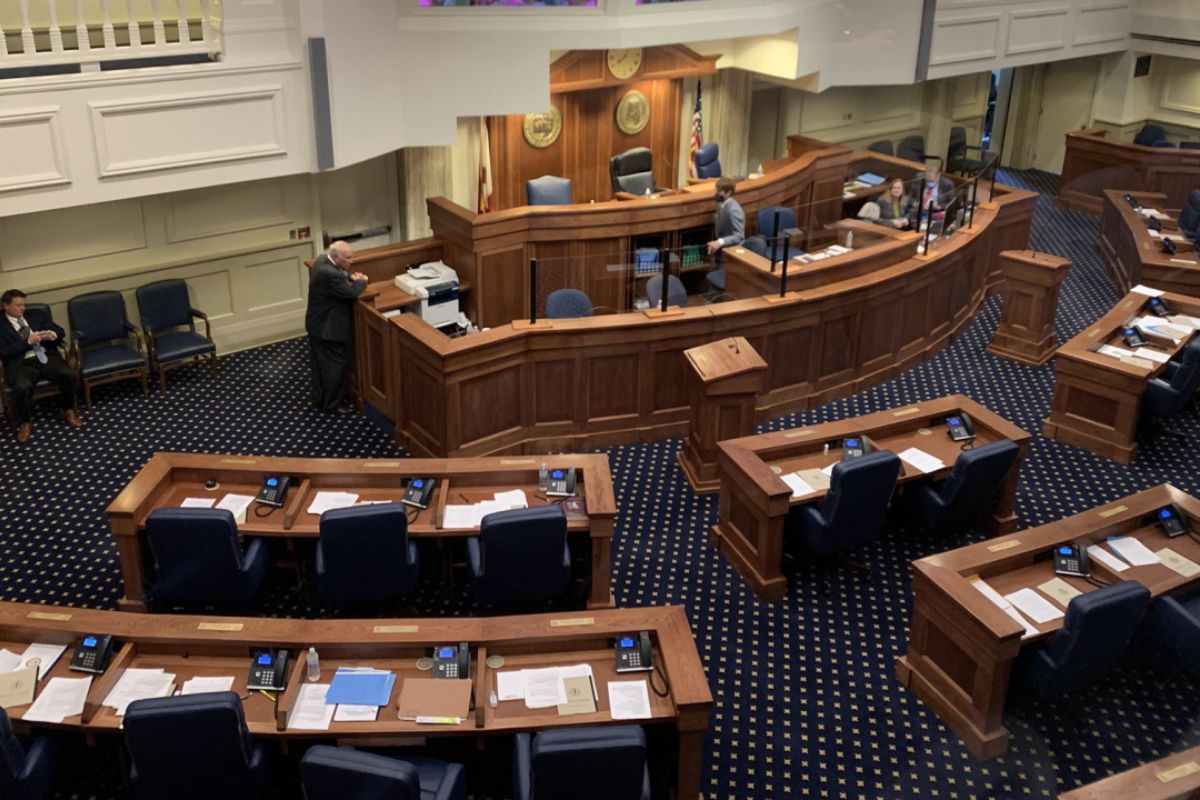Alabama Warns on Child Labor Bill: The recent developments surrounding the child labor bill in Alabama have sparked a contentious debate among lawmakers and advocacy groups. While the state issues warnings about potential consequences, a senator is actively engaging in discussions on the necessity and implications of proposed regulations.
As the dialogue unfolds, questions arise regarding the balance between protecting young workers and ensuring economic viability. The intersection of politics, labor rights, and economic interests in this debate promises to shed light on the complex landscape of child labor laws and their impact on society.
Key Takeaways
- Proposed changes in Alabama’s Child Labor Bill raise concerns about potential harm and exploitation of young workers.
- Senator Orr‘s advocacy for parental rights sparks debates on balancing parental autonomy and worker protection.
- The debate highlights the importance of finding a balance between parental discretion and government intervention in youth employment.
- The impact extends beyond child labor regulations, touching on broader implications for the economy and workers’ rights.
Legislation Overview
The proposed legislation in the Alabama House and Senate concerning child labor seeks to modify current regulations for 14 and 15-year-olds entering the workforce. Specifically, the focus is on removing the requirement for a work form signed by a school administrator, thereby transferring the decision-making authority solely to parents. This shift raises concerns about potential exploitation of young workers, as the school administrator’s oversight serves as an added layer of protection to ensure that minors balance their work responsibilities with their educational requirements.
By removing this requirement, the legislation might inadvertently expose teenagers to longer work hours or more strenuous labor, potentially jeopardizing their academic progress and overall well-being.
Moreover, this change could also lead to inconsistencies in monitoring the type of work minors engage in and the hours they work, as parents may not always have the time or ability to oversee their children’s employment conditions closely. This proposed modification warrants careful consideration and further evaluation to safeguard the rights and welfare of young individuals entering the workforce.
Advocacy Perspectives
Amidst the debate surrounding the proposed Alabama Child Labor Bill, various advocacy perspectives shed light on the potential ramifications of altering current regulations for young workers. Worker policy advocate Dev Wakeley from Alabama Arise has raised concerns about the proposed bill, emphasizing that the existing requirements play a crucial role in safeguarding young workers. Wakeley argues that these regulations are in place to protect young individuals from exploitation and ensure that they are academically prepared for part-time after-school jobs. The criticism directed towards the bill stems from fears that removing these protections could expose young workers to potential harm and exploitation in the workforce.
Advocacy Perspectives:
- Protection of Young Workers: Advocates stress the importance of current regulations in safeguarding young workers from exploitation.
- Academic Preparedness: Existing requirements are seen as crucial in ensuring that young individuals are adequately prepared for balancing work with their academic responsibilities.
- Potential Harm: Critics warn that altering these regulations could expose young workers to risks and vulnerabilities in the workforce.

ALSO READ: Alabama Bans Cultivated Meat! Election Year Drama Unfolds.”
Current Regulations and Proposed Changes
Advocates for the proposed Alabama Child Labor Bill argue that the current regulations requiring individuals under 16 to obtain a work form signed by a school administrator may be overly restrictive, hindering parental autonomy in determining their teenager’s readiness for employment. The existing mandate necessitating proof of satisfactory grades and attendance could be seen as an unnecessary barrier for young individuals seeking job opportunities. Supporters of the new legislation contend that parents are in the best position to assess their child’s capabilities and maturity for work, and should not be bound by school-related criteria.
In contrast, opponents of the proposed changes emphasize the importance of academic performance and school attendance as indicators of a minor’s ability to balance work and education. They argue that the current regulations are in place to safeguard the well-being and educational progress of young individuals. The debate surrounding these regulations reflects differing perspectives on the role of parents, schools, and the government in overseeing youth employment.
Debate on Overregulation
Senator Arthur Orr’s assertion that the current labor law represents overregulation sparks a contentious debate on the balance between parental autonomy and government oversight in determining teenagers’ readiness for employment. Orr argues that parents should have the freedom to decide whether their teenagers are prepared to enter the workforce without the need for government approval. However, advocates like Wakeley contend that the existing regulations provide a necessary layer of protection, ensuring that young individuals are not subjected to exploitation or unsafe working conditions. The debate on overregulation in child labor laws hinges on finding the right equilibrium between allowing parental discretion and safeguarding the well-being of adolescent workers.
Key Points:
- Parental Autonomy: Orr emphasizes the importance of parental rights in determining their children’s readiness for employment.
- Government Oversight: Advocates stress the need for governmental regulations to prevent exploitation and ensure safe working conditions for young individuals.
- Balancing Act: The discussion revolves around striking a balance between parental autonomy and government intervention to protect teenagers in the workforce.
Impact on Economy and Workers’ Rights
The discourse surrounding the Alabama Child Labor Bill debate has expanded to encompass the broader implications on the economy and the fundamental rights of workers, shedding light on critical issues such as inadequate compensation and the perceived lack of empowerment within the labor force.
State leaders are now focusing on bills that may have a significant impact on economic dynamics. Wakeley, a prominent figure in the debate, emphasizes the urgent need to address pressing concerns like insufficient pay, the absence of workers’ control over their working conditions, and a government that is seen as unsupportive or even hostile towards labor empowerment initiatives.
These issues not only affect individual workers but also have ripple effects on the overall economy. By neglecting to address these fundamental rights and economic disparities, lawmakers risk perpetuating a system that undermines the dignity and well-being of workers while potentially hindering sustainable economic growth.
It is imperative that these concerns are at the forefront of the discussions surrounding the Alabama Child Labor Bill to ensure a fair and just outcome for all stakeholders involved.
Conclusion Of Alabama Warns on Child Labor Bill
The debate surrounding the child labor bill in Alabama has highlighted the conflicting views on regulations within the workforce. Advocates argue for stricter measures to protect young workers, while opponents fear the potential impact on the economy and workers’ rights.
It is crucial for policymakers to strike a balance between ensuring the safety of children in the workforce and fostering a business-friendly environment. The outcome of this debate will have far-reaching implications for all stakeholders involved.
Our Reader’s Queries
What is the child labor law in Alabama?
Alabama’s Child Labor Regulations:
For 14 or 15-year-olds when public schools are in session:
– No work during school hours (8 a.m. to 3 p.m.).
– No work between 7 p.m. and 7 a.m., any day of the week.
– Limited to three hours per day on a school day.
What are the child labor laws in the United States?
The federal child labor law prohibits:
– Employment of minors under 14 in nonagricultural occupations.
– Restrictions on hours and types of work for minors under 16.
– Prohibition of minors under 18 in hazardous occupations.
What are labor laws in Alabama?
Alabama lacks state-specific minimum wage and overtime laws for adults. Consequently, employers under the FLSA must adhere to the federal minimum wage of $7.25 per hour and comply with FLSA overtime regulations.

